The Department of Teaching and Educational Leadership offers an associate's degree program, three undergraduate programs leading to Arkansas teacher licensure, one graduate program leading to Arkansas teacher licensure, and a number of advanced programs for endorsement, adding education licenses, and for non-teacher licensure. The Teacher Education program at Tech has a long history of preparing teachers and is accredited by the Council for the Accreditation of Educator Preparation (CAEP) (formerly NCATE).
This program is based on the value-added concept of school leader preparation from the building leadership to the district level leadership positions, such as superintendent and Assistant Superintendent.
This is a degree that is intended for scholar/practitioners who will be involved in field-based applied research in partnership with schools, or other educational agencies, and who will apply new knowledge and skills at work, and as a result improve learning and achievement in schools.
Mission: Develop and inspire teachers and educational leaders who value equity, innovation and student success.
Vision: Seek to develop and empower teachers and educational leaders to positively influence an ever changing world.
The Educational Unit at Arkansas Tech University provides several undergraduate and graduate professional education programs designed to positively impact student learning through the preparation of Professionals of the 21st Century. Due to the variety of programs offered to accomplish this mission, the Educational Unit has actively, consistently, and collaboratively worked with a variety of stakeholders in the learning community to determine what our core values should be to anchor the unit, the expression of these core values in our vision and mission, the programs within the unit, and the assessment throughout. We believe these core values to be central in our vision of "impacting learners in diverse learning communities" and in preparing Professionals of the 21st Century to do just that. These core values are lasting beliefs that when adopted by our students as their own will assist our graduates in becoming "professionals who interact effectively within dynamic educational systems to impact learners in those diverse learning communities."
The core values are the context for how professional, state, and institutional standards are addressed within the programs as we prepare Professionals of the 21st Century. The core values direct the development and refinement of programs, courses, design of instruction, research, service, and assessment. Our assessment of student learning (both of our students and the students they work with) then drives the process in the other direction to assist us in improving each of the aforementioned factors and in revisiting and/or the reconsideration of the outworking of these core values within our students. The core values include the following statements of belief:
Founded upon these core values our mission, vision, and conceptual framework Professionals of the 21st Century, have been developed. The framework emphasizes the Professional of the 21st Century as a continuously learning individual with a strong and developing knowledge of school systems and culture; with an increasing level of content and pedagogical knowledge, skills, and dispositions; with a strong and growing liberal arts background; and with growing expertise concerning developmentally appropriate practices. As candidates progress through their undergraduate preparation and as they then pursue their graduate preparation, these areas of expertise are expected to grow. Ultimately, this preparation is centered-upon the improvement of student learning.
This framework agrees with the expressed mission of Arkansas Tech University. By considering our students as life-long learners (continuous learning professionals), and by assessing our students' knowledge and skills carefully and consistently, the mission of Arkansas Tech University and the mission and vision of the Arkansas Tech University Education Unit are aligned. Further, the fulfillment of our mission by modeling best practices, by being committed to continuous learning and purposeful reflection, and by working collaboratively with internal and external constituencies not only serves in the preparation of our candidates as Professionals of the 21st Century but improves our teaching and learning environments as well, which are main functions of Arkansas Tech University.
To summarize, the Professional of the 21st Century is a continuously learning expert with a(n):
These four foundations are unified through the following factors:
In other words a strong and developing knowledge of school systems and culture should include the understanding of the diversity within the school systems and culture, leadership structures and processes within the school systems and culture, the key role of technology in the school systems and culture, and so forth. An increasing level of content and pedagogical knowledge, skills, and dispositions should include emphasis upon issues of diversity, technology, oral and written communication, and so forth. The emphasis of these same unifying aspects throughout each of the four foundations of the conceptual framework is present and is evidenced in each separate program that seeks to prepare Professionals of the 21st Century. As our candidates progress through each program (undergraduate through graduate) their expertise in these aforementioned unifying forces and foundations should continually grow.
These key unifying forces and the aforementioned four foundations are evidenced in each program via the particular program standards and the assessments of our students based upon the program alignment with these respective standards. For example in the undergraduate teacher education program, the Arkansas Standards/Principles for Beginning Licensure and the Pathwise Criteria (both of which are founded upon the INTASC Standards) along with the National Education Technology Standards adopted by the Arkansas State Department of Education are considered the Benchmarks from which we determine whether or not our students have: 1.) Adopted the core values evidenced in the conceptual framework, 2.) Provided appropriate evidence to demonstrate their expertise concerning the four foundational aspects of the framework, and 3.) Provided sufficient evidence to demonstrate an expertise concerning the aforementioned unifying aspects. In alignment with our ultimate focus, which is Student Learning, the INTASC-based standards and criteria provide benchmarks for determining if we are preparing Professionals of the 21st Century who are capable of impacting learners in diverse learning communities and who, when actually practicing in diverse learning communities; have a positive impact on student learning.
In addition to the Arkansas Standards for Beginning Licensure, Pathwise Criteria, and National Educational Technology Standards used as benchmarks in the undergraduate teacher education programs, undergraduate programs also use national standards from their respective program areas as benchmark indicators. For instance the Middle Level Program uses the aforementioned standards and criteria as well as the National Middle School Association standards as benchmarks in the development of the Middle Level Program and in the assessment of candidates within the program.
In graduate programs such as the Master of Education in Teaching, Learning, and Leadership, for example, the National Board for Professional Teaching Standards (NBPTS) and Interstate School Leaders Licensure Consortium (ISLLC) are used as benchmarks. In addition the program uses the Arkansas Curriculum Program Administrator Standards and appropriate National Educational Technology Standards as benchmarks of their candidates' progress.
Each undergraduate and graduate program is standards-based in the development and refinement of programs, courses, design of instruction, and assessment. In summary the Arkansas standards and Pathwise Criteria serve as the basic benchmarks for program development, student assessment, etc. Further benchmarks are developed through the examination and alignment of programs with their respective national standards.
Based upon this alignment to state and national standards, the Arkansas Tech University Education Unit has three primary goals:
There are several knowledge bases that inform our conceptual framework. The work by Danielson (2007) in agreement with the INTASC standards (Interstate New Teacher Assessment and Support Consortium, 1992) and directly aligned to the Pathwise criteria provide the initial support for each of our four foundational areas previously discussed. The importance of each of these four foundational areas connected through the six unifying factors cited previously is strongly established upon a rich theoretical, research, wisdom of practice, and educational policy base. Each of the four foundations with their informing knowledge bases will be briefly reviewed.
College Distinction provides exceptional current Arkansas Tech students an opportunity to challenge themselves academically and gain recognition for their outstanding work in the college classroom.
Students with at least sixty hours of college credit and thirty hours of course work at Arkansas Tech with a minimum 3.5 GPA are invited to participate in the program. Students who accept the invitation to pursue College Distinction will have the opportunity to take two courses designated as distinction courses.
The first is an enrichment course. This course provides an extra educational experience related to the student’s field of study and could include, among other experiences, study abroad, internship, service learning, or mentor-guided research.
The second is an enhanced capstone course. This course demonstrates a student’s ability to work at an exceptional level in a given field and is enhanced by an advanced or accelerated curriculum.
Students’ successful completion of the course requirements and a graduating GPA of 3.5 or better will allow for graduation “with distinction.” This will be noted on student transcripts and diplomas.
Each department will identify distinction courses for each major. Once a student has completed a College Distinction Letter of Intention in Elementary Education, Middle Level Education, or Secondary Education; the student, his or her advisor, and the Curriculum and Instruction department head will meet to specifically delineate the College Distinction expectations.
The general College Distinction requirements for these students will involve two initiatives completed during the internship experience to encourage school and community improvement through the efforts of the teacher education candidate during his or her internship experience.
First, the student will initiate, facilitate, and participate in a service learning project of need within their internship placement site community. This service learning effort is to engage the students within the placement school as well as other interested participants.
Second, the student will meet with appropriate administrators, teachers, and/or directors to examine the internship placement school’s Arkansas Comprehensive School Improvement Plan (ACSIP) improvement needs and will provide a research-based paper for presentation addressing one or more identified needs.
A presentation will be completed within the internship placement school setting. To accomplish this goal, the student intern will meet with his or her major advisor during the internship experience to assist in specifying topic exploration and available resources and to determine processes to effectively present this information to stakeholders within the intern’s placement school setting.
Through these efforts, the student intern will assist in the improvement of both the school and the community in which he or she completes the internship experience.
After completing these two goals, the student intern will document these experiences and will present these results to his or her university supervisor and to other interested stakeholders within the university setting.
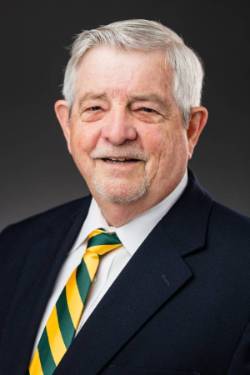
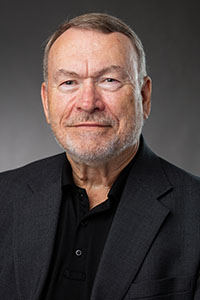


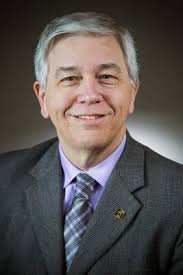
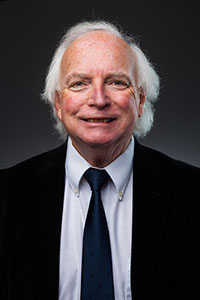

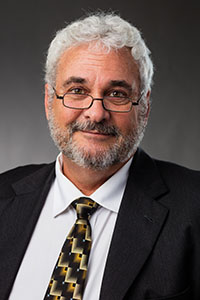



Lydia Rogers
Crabaugh Hall 204
1310 El Paso Avenue
Russellville, AR 72801
Phone: (479) 964-0583 ext 2552
Email: lrogers10@atu.edu
Teacher Education Student Services
ILona Davidson
Crabaugh Hall 109
1310 El Paso Ave
Russellville, AR 72801
Phone: (479) 968-0583 ext. 2593
Email: idavidson2@atu.edu
Teacher Licensure & Support Services
Kim Tate
Crabaugh Hall 308
1310 El Paso Ave
Russellville, AR 72801
Phone: (479) 964-0583 ext 2203
Email: ktate4@atu.edu
Dean's Office
Harley Bell
Crabaugh Hall 214
1310 El Paso Ave
Russellville, AR 72801
Phone: (479) 964-0583 ext 2352
Email: abell20@atu.edu